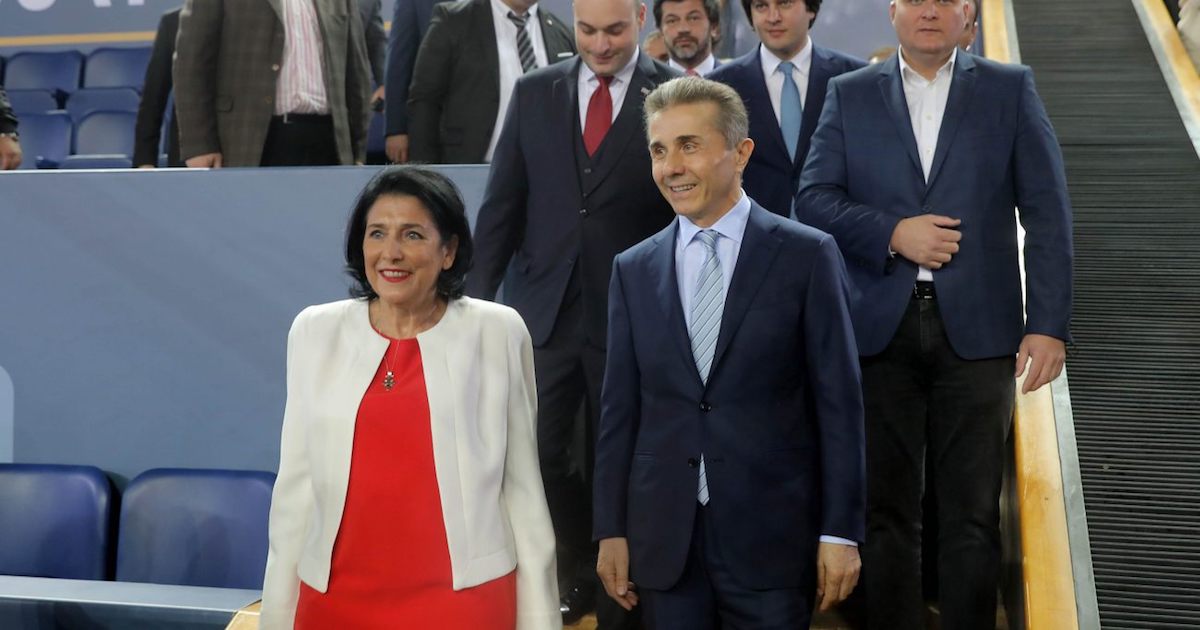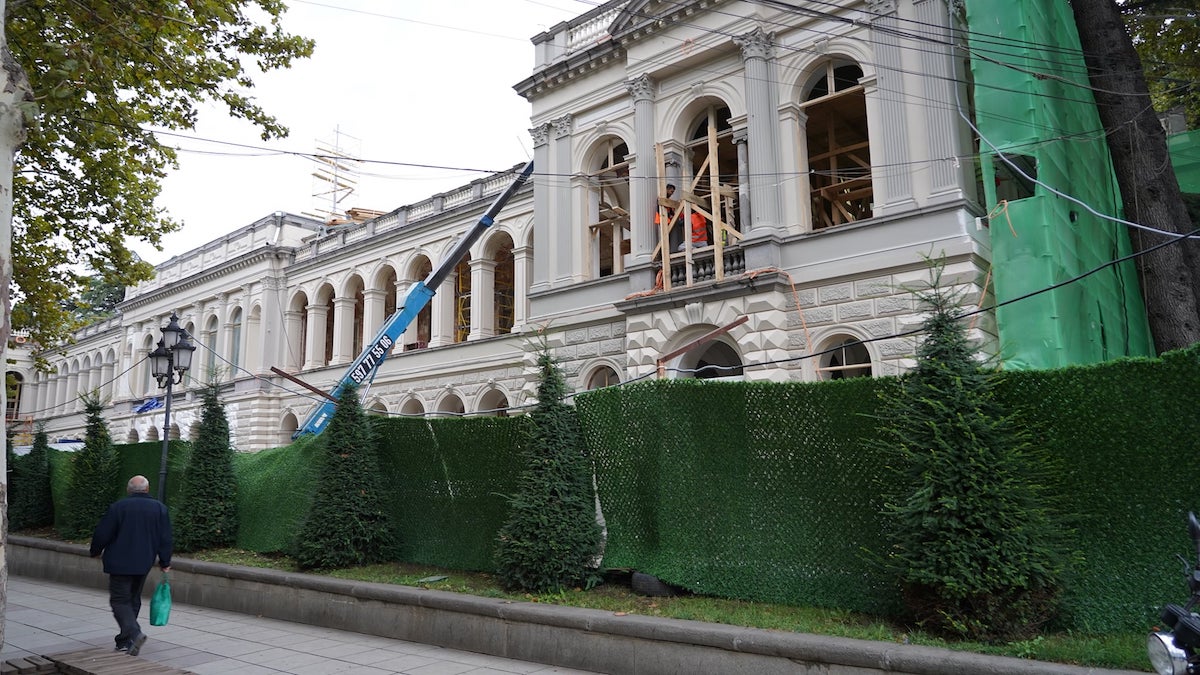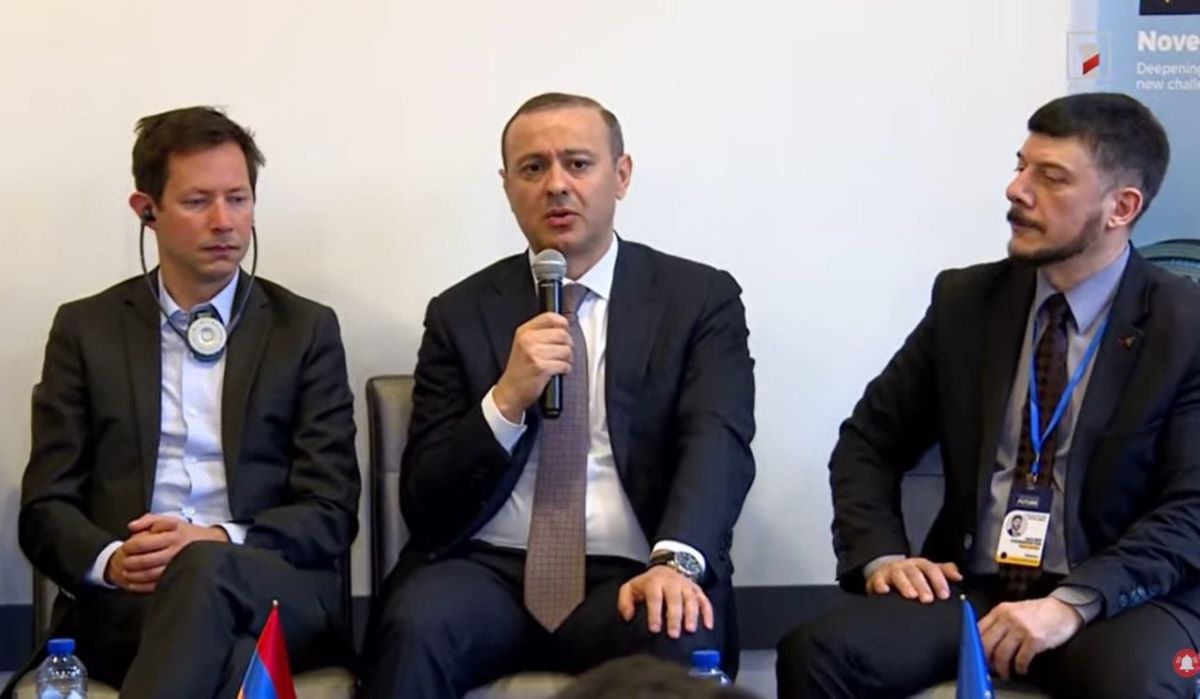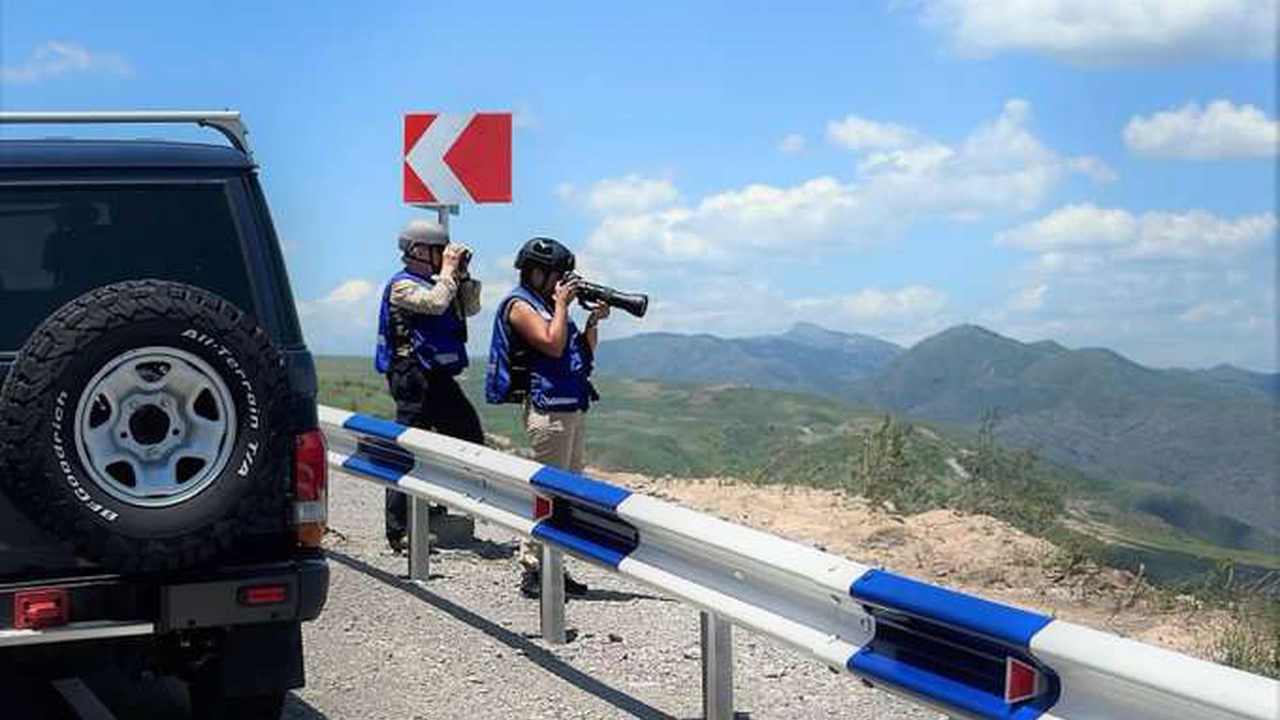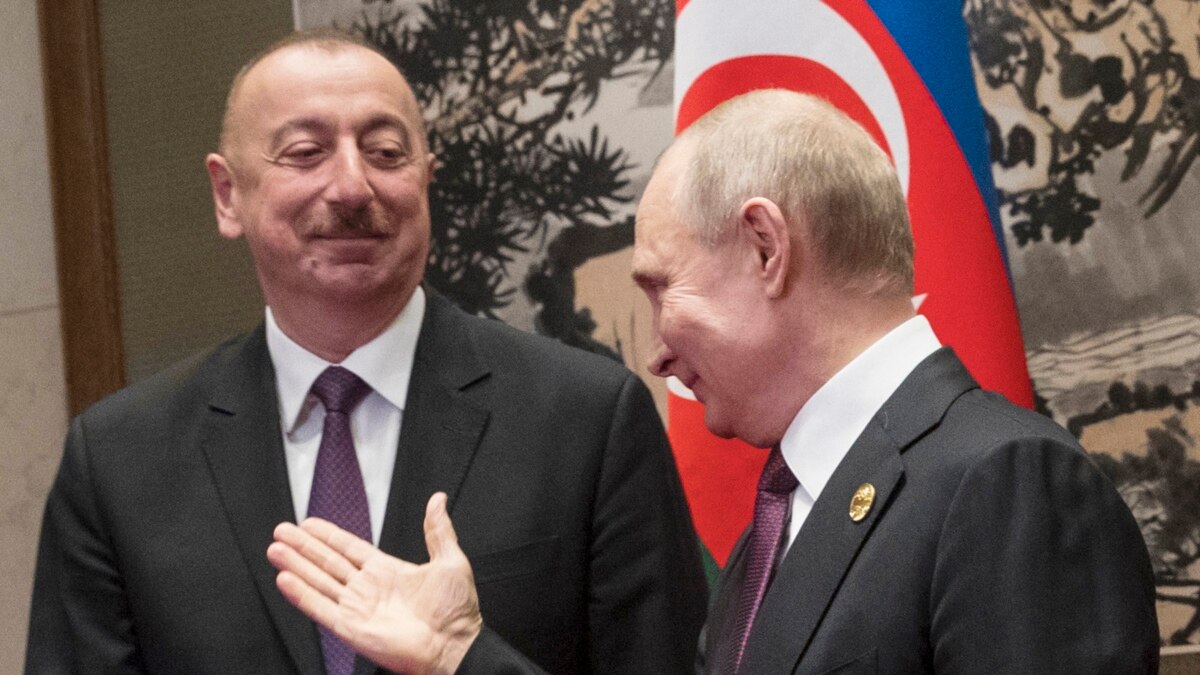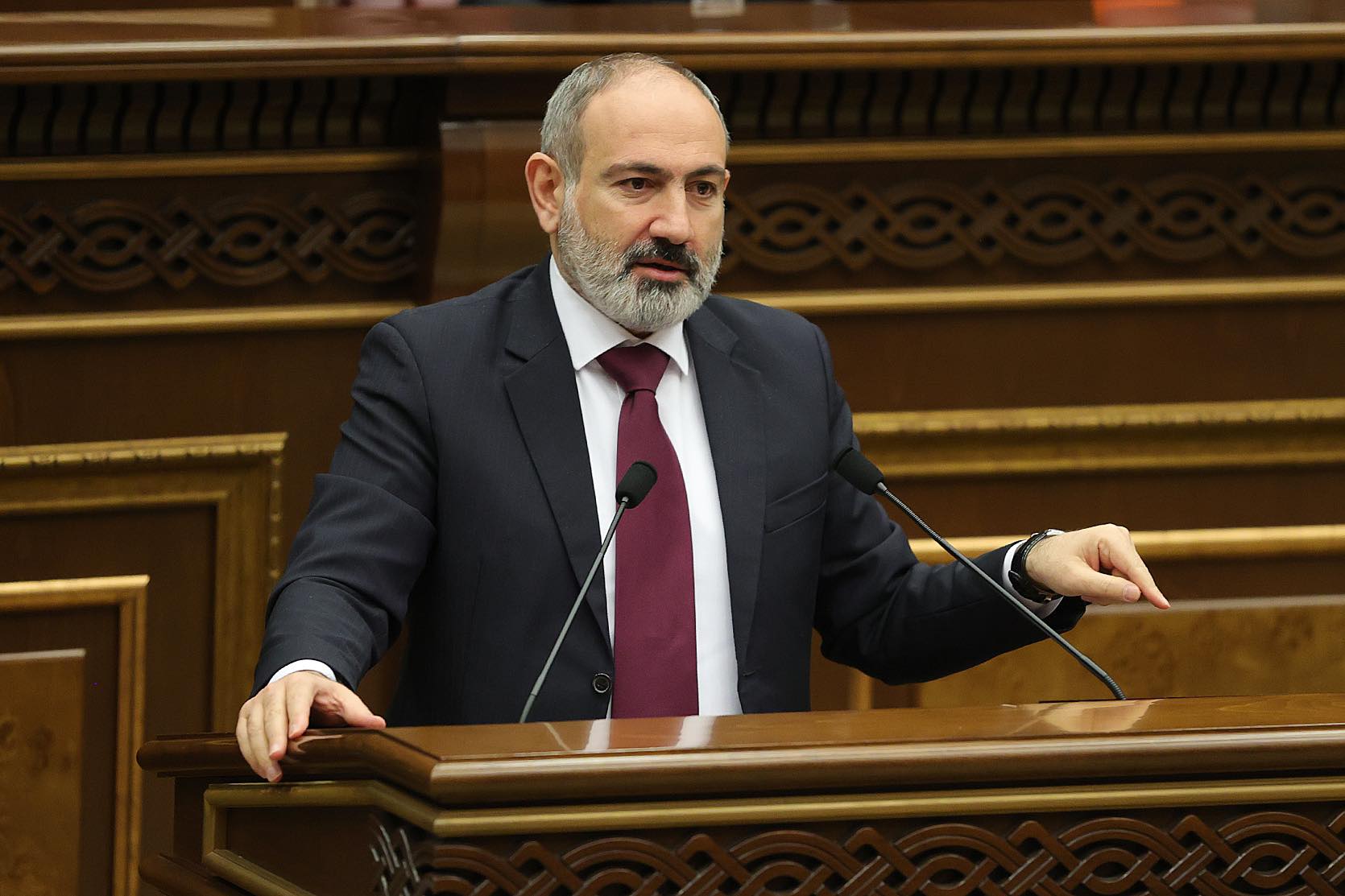EU or Russia: which has each of the South Caucasus countries chosen?
EU or Russia
The European Commission has recommended granting Georgia candidate status for EU membership. The final decision will be made by all 27 EU member states in December. European Commission head Ursula von der Leyen says the European Union appreciates the aspiration of the Georgian people and it “should be better reflected by the government.” Georgia’s mostly pro-Western opposition also declares that the European Commission’s positive decision is a credit to the Georgian people, not the efforts of the pro-Russian government.
Armenia is furthering cooperation with the West in general and in particular with the European Union in all areas, including security. Speaking in the European Parliament, Prime Minister Nikol Pashinyan said, “The Republic of Armenia is ready to be even closer to the European Union – as close as the EU deems possible”. However, Armenia’s authorities will not yet allow themselves to take any drastic steps to withdraw from Russian integration structures, particularly the CSTO military bloc.
Azerbaijan has recently made harsh statements towards its Western partners. The authorities declare their position biased towards Azerbaijan and refuse to participate in negotiations with Armenia both in Washington and Brussels. President Ilham Aliyev recently praised the Russian negotiating format. At the same time, Azerbaijan openly supports Ukraine, which is at war with Russia.
Where does each of the three South Caucasus countries ultimately aspire to go, what foreign policy vector does each of them choose? JAMnews turned to Armenian experts with this question.
- The European Commission has recommended Georgia for candidate status, but what conditions have they set?
- “Armenia is openly threatened with the Ukrainian scenario”. Opinion from Yerevan
- “The West will have to accept the new realities in the region.” Comment from Baku
Johnny Melikyan, expert on Georgian issues
The Ukrainian crisis has accelerated the process of European integration
“Georgia has been an associate member of the EU for many years, and obtaining candidate status for EU membership, with all the difficulties, will be the next step on the road to European integration.
The process of Georgia’s European integration was accelerated by geopolitics, in particular by the Ukrainian crisis that emerged years earlier. Three countries (Georgia, Moldova, Ukraine) were given the opportunity to sign the Association Agreement with the EU in an accelerated manner. And today, again, based on geopolitical realities, the European Commission has given Georgia the green light and recommended candidate status.
This status does not imply anything special, it is a political statement that Tbilisi is seen in the club of European states in the future – provided certain reforms are done in the country.
But the EU candidate status as a victory in Georgia will be capitalized on by all political forces – both the authorities and the opposition. They will go to next year’s elections with this ‘victory’.”
The process of European integration depends on geopolitical processes
“The High Representative for Foreign Affairs Josep Borrell and other European officials from the EU said that they see no prospect of enlargement before 2030.
This means that even Moldova and Ukraine, which are one step ahead of Georgia, cannot expect membership before 2030. The process can be accelerated by the same geopolitics, if it changes a lot and new realities emerge.
Now they may emerge as a result of the confrontation between Russia and the West. It is important what kind of balance will emerge.
If there is more stability, then most likely there will be no need for urgent decisions, and formal procedures will be followed – work on reforms, legislation, harmonization with European standards.”
Accusations of a pro-Russian course
“For 10 years, everyone has been accusing Georgia of changing the course of the country, of bypassing Western values. But they have been moving towards European integration through reforms, even if slowly (somewhere they succeeded, somewhere not so much), and continue to do so.
Georgia is a sovereign country and it prefers not to harm its economic situation. If there are economic ties with Russia against the background of crisis and lack of diplomatic relations and political dialog, they keep them.
Georgia supports Kiev, but at the same time says that the country has unresolved issues of territorial integrity, there are no guarantees of external forces, no NATO umbrella – that luxury so that they can transfer their weapons to Ukraine. They explain this by saying they may need these weapons themselves.
Naturally, the West and the country itself do not like this diversification of relations, and accusations are being made against Georgia.”
To benefit and, if possible, not to be harmed
“The same thing is happening with Armenia, which is a member of pro-Russian structures, but is trying to diversify its military-political ties and economic policy.
What will be the future of the European Union itself, what balance of power in the world may emerge, what new organizations may emerge – these are still questions.
These changes do not depend on such small countries as Georgia and Armenia. We are trying to adjust, to maximize the benefits of relations with different players and if possible not to suffer.”
Hovsep Khurshudyan, Political Analyst
Armenia establishing military cooperation with different countries
“Armenia is really moving towards Europe, and this can be seen not only in the statements of the authorities, but also in their actions.
Armenia’s cooperation with European countries and the United States has intensified. And this is not a coincidence. Security is the main topic of Armenia’s foreign policy, because it is most vulnerable now.
Armenia cooperates in the military sphere not only with France, but with other European countries as well.
Institutional changes are being made to remove all obstacles to European integration.
The latest statement of the EU High Representative for Foreign Affairs and Security Policy, Josep Borrell, is noteworthy. He announced that the provision of assistance to Armenia within the framework of the European Peace Facility is being considered, and discussions on the liberalization of the visa regime are beginning.
The European Peace Facility is a mechanism through which Brussels provides funds to non-EU countries to improve their defense capabilities, prevent conflict and promote peace. Through this mechanism, the EU has supported Ukraine, Georgia and Moldova.
There’s no third way
“The other day at the Armenia-Europe “Armenia’s Strategic Future” conference, Secretary of the Armenian Security Council, Armen Grigoryan, said that we have two paths: non-aligned status or European integration. He does not see a third way, i.e. Armenia in an alliance with Russia.
Armenia formally continues to be in the Russian military bloc CSTO, and this is not surprising. The issue of withdrawal from it is not only on the agenda, but is internally resolved. How and when it will be formalized is a matter of time.
Will there be a “Caucasian trio” in the EU?
If Armenia, along with Georgia, integrates into the EU, Azerbaijan will have to make a choice: either become part of the “Caucasian trio” or face serious problems with cooperation with the EU. It will be impossible to sit on two chairs.
Just as Armenia is now facing a choice between Russia and the West. And Armenia has chosen its path.
Tatevik Hayrapetyan, Azerbaijanologist
Authoritarian rule has nothing to do with the West
“For decades, Azerbaijan’s policy has been aimed at maneuvering between different geopolitical forces. Baku prefers not to make a pronounced choice of foreign policy course.
But in the matter of state governance, Azerbaijan has chosen an authoritarian form of government, which has nothing in common with the West.
It is worth remembering that in 2015 mass arrests began in Azerbaijan, and many activists who opposed the authoritarian regime pinned great hopes on the West, on the fact that it would use its leverage. But this did not happen and the situation has not changed.
Since then, Azerbaijan has finally disposed of the protest stratum of society which could somehow oppose Aliyev’s policy. The dictatorial regime in Azerbaijan was strengthened, and after 2020, Aliyev appropriated all the laurels of victory for himself and his family and continues to hold on to power.”
Russian gas to Europe – through Azerbaijani pipes
“As for economic and other areas of cooperation, Azerbaijan works very intensively with both Europe and Russia.
With the beginning of the Ukrainian war, Baku skillfully took advantage of the situation and began to supply sanctioned Russian gas to Europe. This is called “gas diversification”.
In reality, Azerbaijan does not have such gas reserves and cannot become an alternative to Russia. Iranian gas, for example, could become an alternative to Russian gas.
This situation shows that Aliyev is allowed to sit on two chairs.
At the same time, even the rhetoric of European officials during their visits to the region differs in subject matter. In Armenia and Georgia they talk about democracy and media freedom, while in Azerbaijan they talk about economic interests.
And we see that economic benefits prevail over the political system of values. For me, Aliyev’s “victory parade” in Nagorno-Karabakh with fascist rhetoric against Armenians is a victory parade of authoritarianism in the region. Aliyev was allowed to do that too.”
Got what he wanted and turned his back
“It is obvious that after the aggression in Artsakh on September 19 this year, Aliyev prefers cooperation with Russia. Previously, Baku made quite unflattering statements about the Russian side. Baku’s relations with Moscow were ambiguous. Aliyev did not like Russia’s proposal to leave the issue of NK status for later.
In general, Azerbaijan cooperates with those with whom it can reach more favorable decisions for itself in a particular period of time. And, based on this logic, it makes its choice.
That is why Aliyev went to Prague last October, where he got “agreements” with Armenia. And French President Emmanuel Macron, by the way, did not interfere with him.
And when he achieved what he needed in the Artsakh issue and the issue of recognizing Armenia’s territorial integrity was already on the table, Aliyev began to reject the Western format of negotiations. He makes sharp attacks against the West and declares that the best mediator is Russia.”
Follow us – Twitter | Facebook | Instagram
EU or Russia










